
Archive Treasures: ‘the loveliest present that has ever happened’ – the gift of a concert to Imogen Holst
StoriesIn July 1942 Imogen Holst received a wonderful letter from a group of friends proposing to organise a concert of her works in London as a thank you gift. Holst was at this time recovering from overwork and exhaustion and this thoughtful gesture would no doubt have raised her spirits.
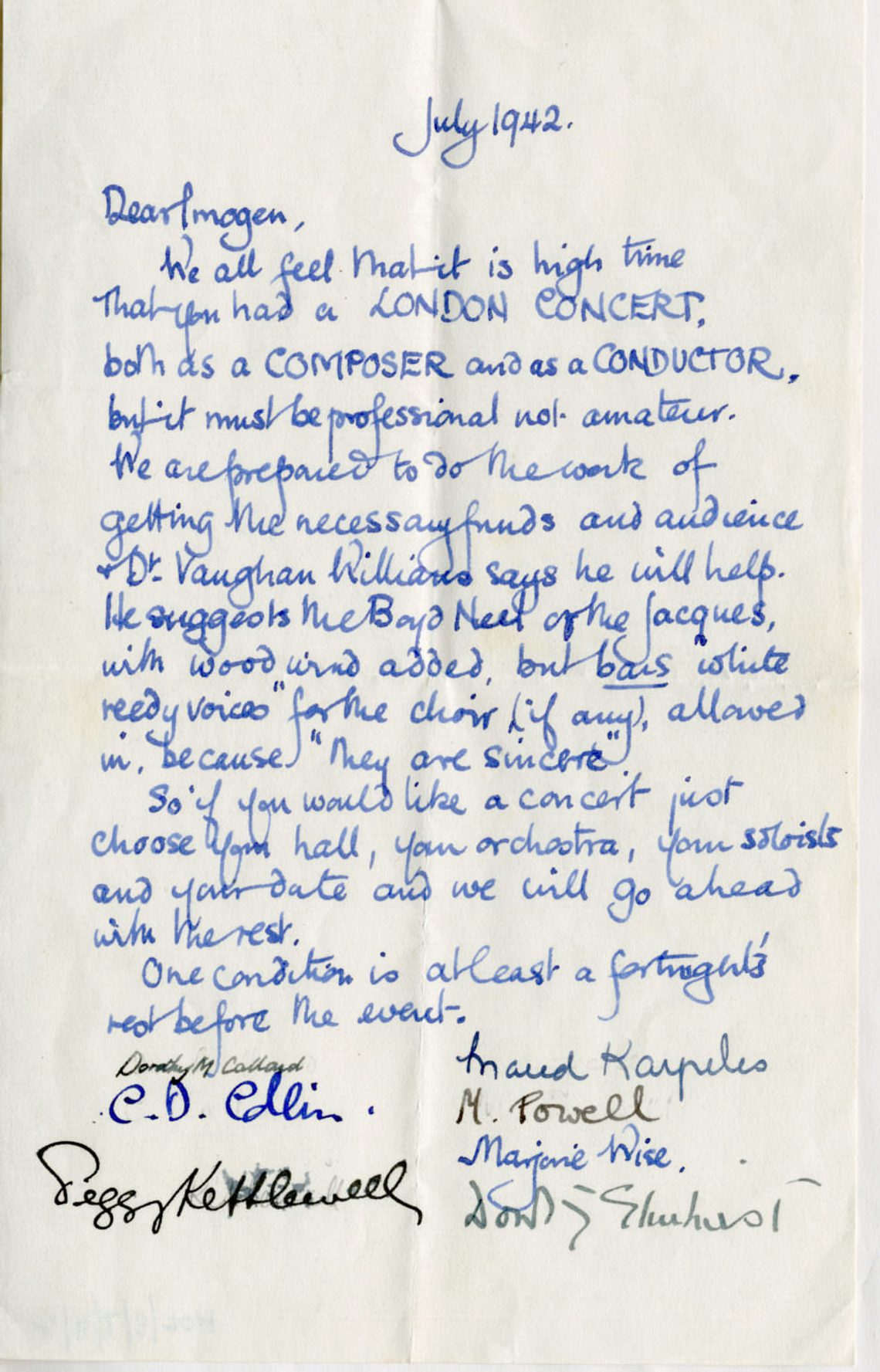
Letter sent to Holst proposing her concert, ref no. HOL/2/7/11/7
In January 1940 Holst had begun work as a ‘Music Traveller’. She was one of six musicians and educators, mostly women, selected to travel the country to boost home morale during the war by encouraging amateur musical activities in rural communities. Holst travelled the wartime countryside, often cycling or walking between villages, covering a huge area from Oxfordshire to the Scilly Isles, encouraging people to sing, dance and play. These ‘Music Travellers’ worked for the newly formed Council for the Encouragement of Music and the Arts (CEMA), a forerunner of the present-day Arts Council of England. Holst’s detailed daily reports of her work (which can be read from the Britten Pears Arts online catalogue) illustrate the central role women played in the crucial task of morale-boosting on the home front.
Two years later Holst was exhausted by the workload and difficult travelling. Leonard and Dorothy Elmhirst stepped in, inviting her to stay at Dartington Hall in Devon, where they were creating an ideal community, running rural projects as well as initiatives in progressive education. At least this provided Holst with a comfortable base for her CEMA work in Devon and Cornwall however in July 1942 her doctor ordered her to give up all work, rest and remain incommunicado until September.
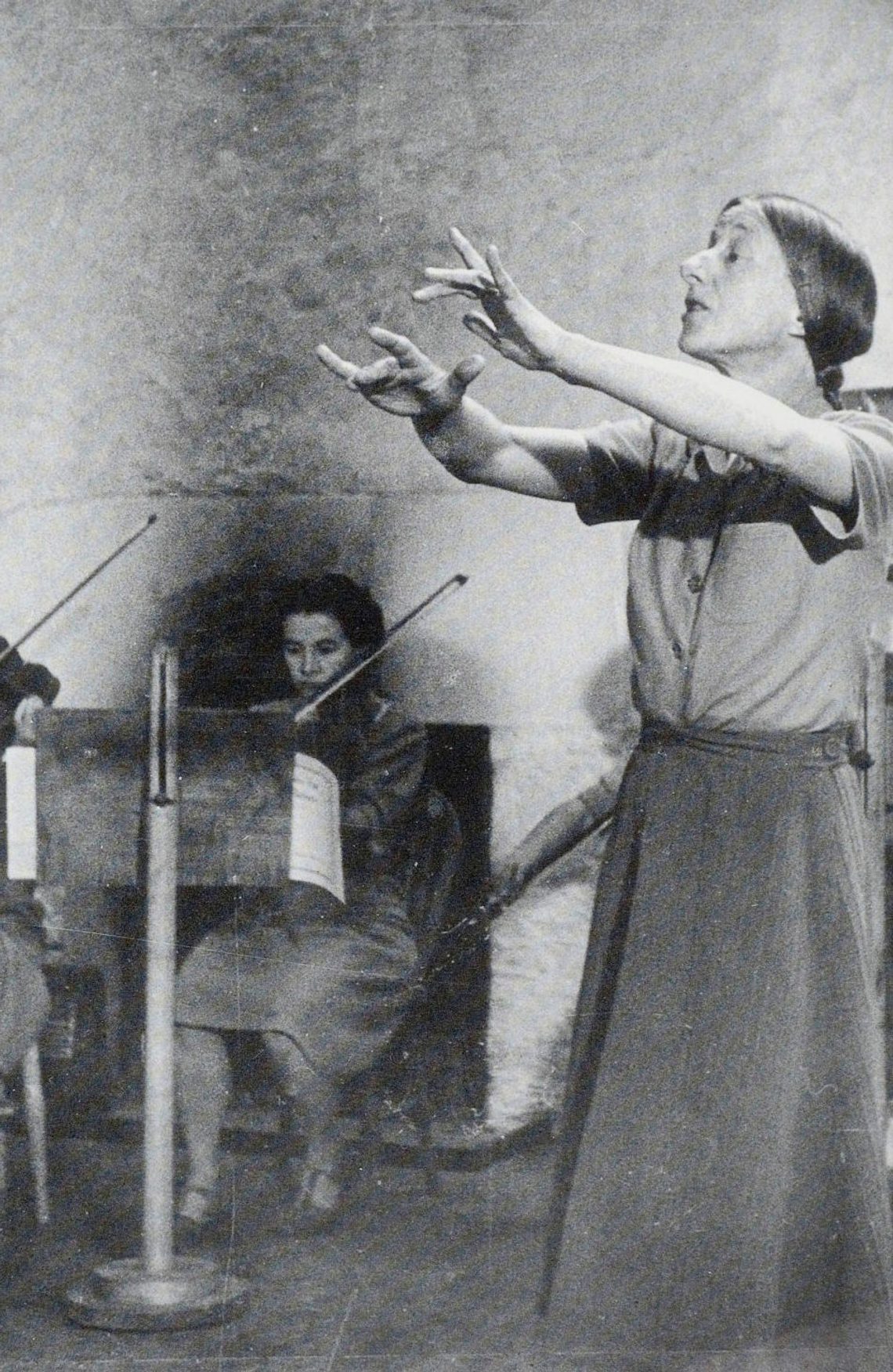
Holst conducting at Dartington, 1942
At Dartington Hall Holst found the peace and time to recuperate. In August 1942 Dorothy Elmhirst wrote to Marjorie Wise – Holst’s friend and a London headmistress evacuated to Oxfordshire – ‘Imogen is enjoying a real rest at last! She tells me each day at lunch that she sleeps and reads and walks alone to the river and elsewhere, and I feel each day, as I look at her, that she is gaining in strength and vigour.’ Holst also found the time and energy to recommence writing her own original compositions starting with her Serenade for flute, viola and bassoon in Autumn 1942. She had whilst working as a ‘Music Traveller’ concentrated on music useful for her work and suitable for her amateurs to perform, such as writing arrangements of Christmas carols or music for recorder trio.
The kind letter Holst received in summer 1942 must have helped her on the road to recovery, as by Spring 1943 she was working on two larger works for string orchestra no doubt with the promised concert and the Jacques String Orchestra in mind. Organisation of the concert was led by Wise who sent a form letter to friends and the many amateur musicians Holst had worked with over previous years, asking for contributions to the gift – a thank you for the many hours and untold energy she had given to their music making. The response was huge.
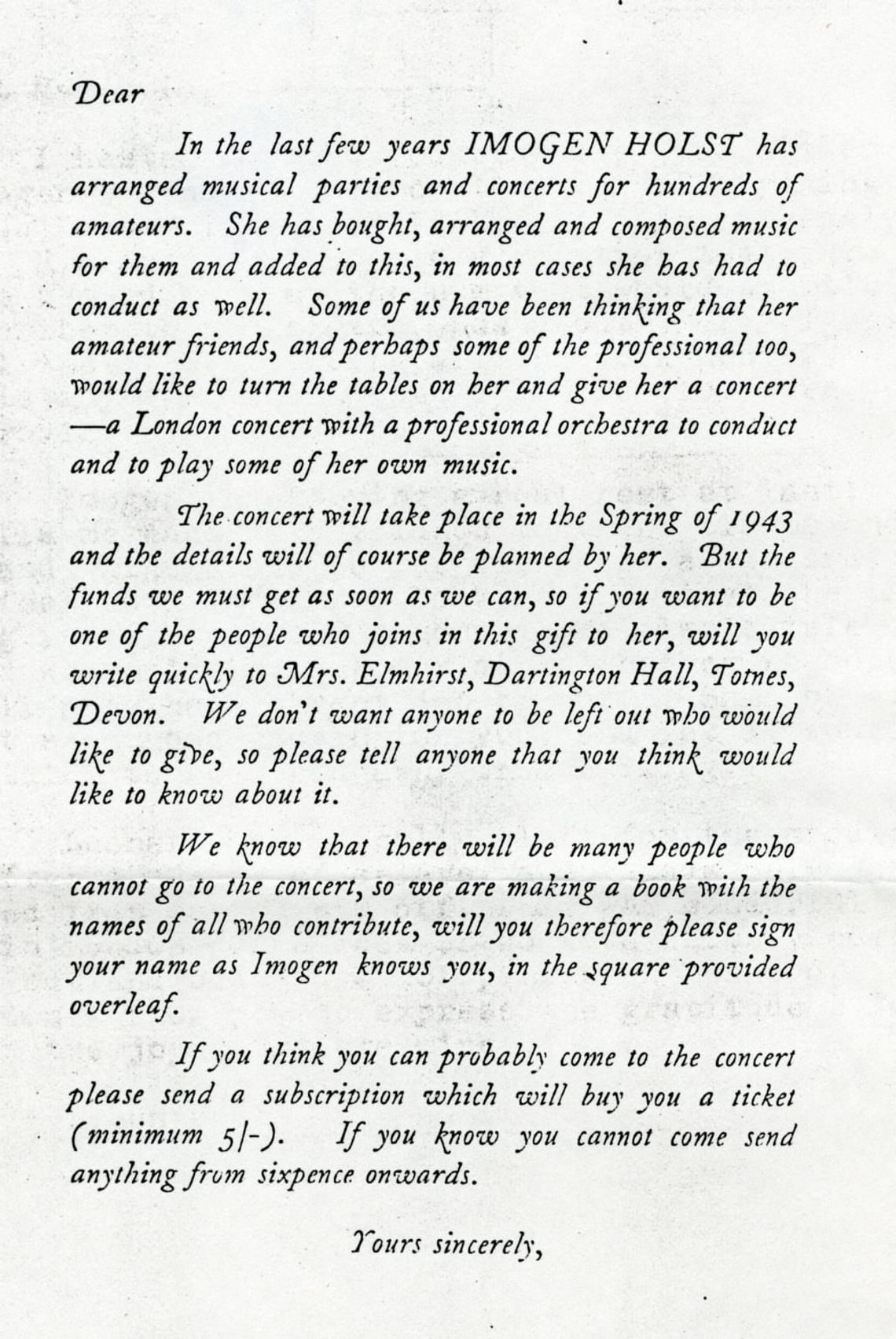
Form letter asking from contributions, ref no. HOL/2/12/7
The commemorative book referred to in the form letter was presented to Holst in Spring 1943 together with news that the sum of money collected was ‘so vast’ to be able to engage the BBC Singers and the Jacques String Orchestra who would be allowed to appear without their usual conductors allowing Holst herself to take the podium. Holst treasured this book which it is now found in the archive. It is a beautiful volume, with a heartfelt inscription in the front, and the names of over 300 contributors pasted inside. Holst wrote to the Elmhirsts ‘Thank you more than I can possibly say for the loveliest present that has ever happened, and thank you also for all the good times we have had together’.
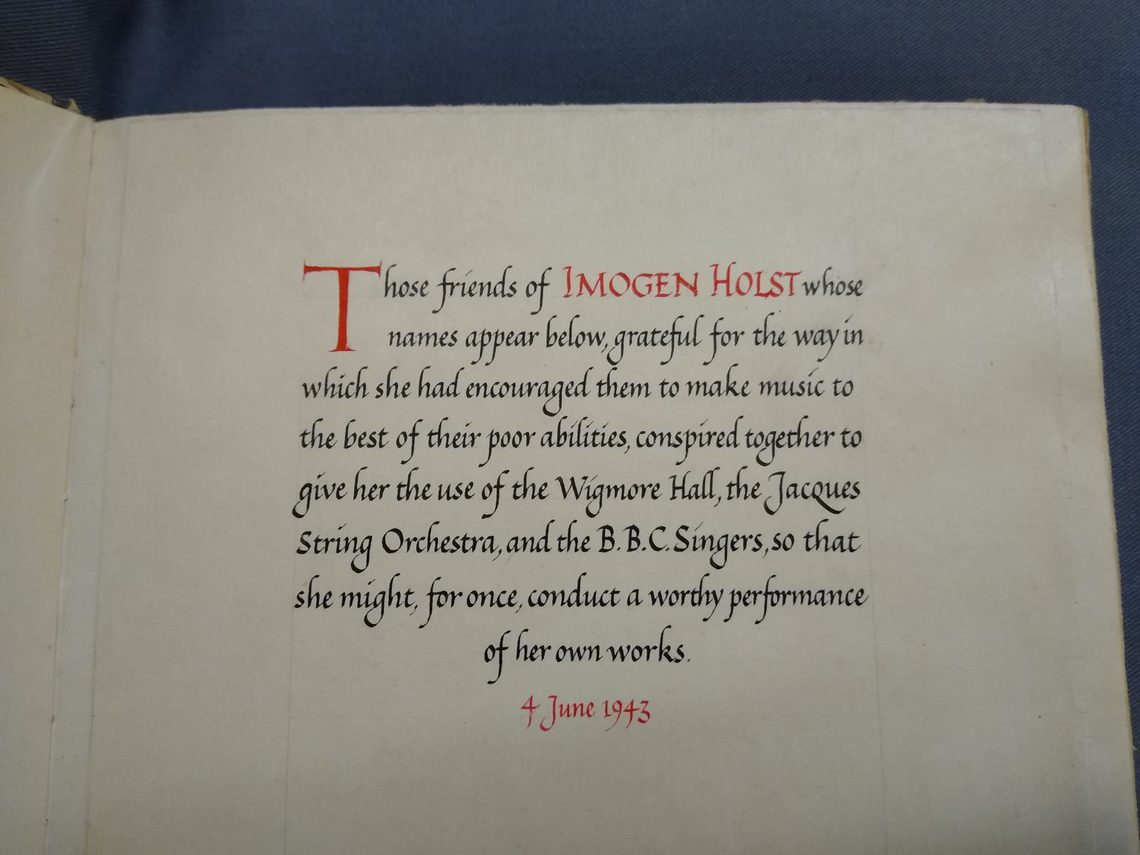
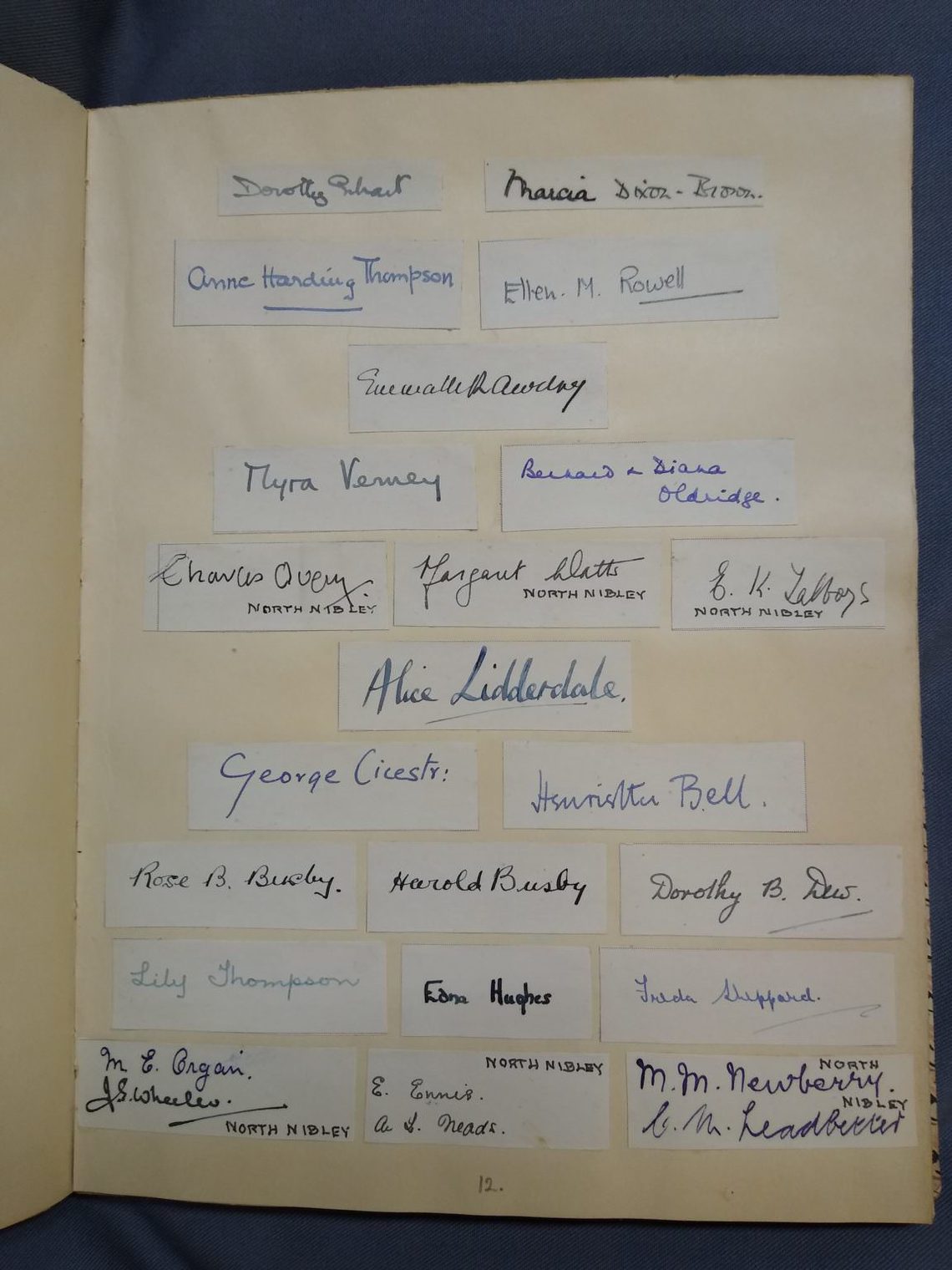
Inscription and signatures in the commemorative book given to Holst, ref no. HOL/2/12/7
The concert, held in Wigmore Hall on 14 June, consisted exclusively of music by Holst and was conducted by her. There were first performances of three original compositions written during her early months at Dartington as well as earlier choral settings of folk songs, no doubt used by her with many groups of amateurs over the previous years.
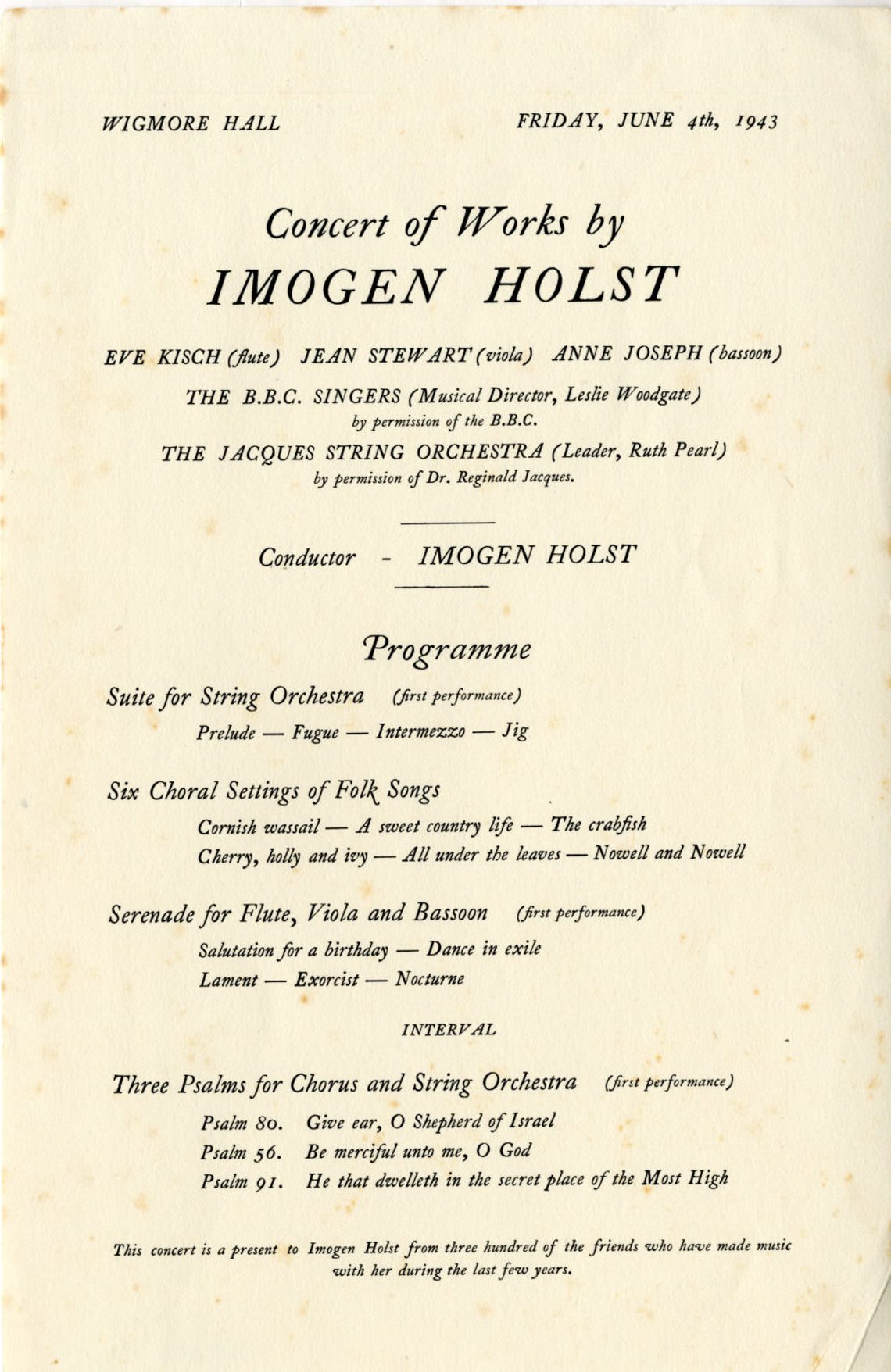
The concert programme, ref no. HOL/2/7/12/7
The concert was reviewed by several papers including The Daily Telegraph and The Daily Mail, with The Times reporting ‘Like her father, Miss Imogen Holst adds many gifts of personality to an acute musical mind, so that, like him, she has inspired amateurs to many valuable enterprises.’
Holst remained at Dartington Hall for a further eight years establishing a music department that was way ahead of its time as well as arranging performances and recitals by visiting musicians. Since Summer 1942 Britten and Pears had, as conscientious objectors, been travelling the country giving recitals, often under the auspices of CEMA, in order to boost morale and maintain art in wartime. Holst invited them to give a recital at Dartington in October 1943 and the three met for the first time.
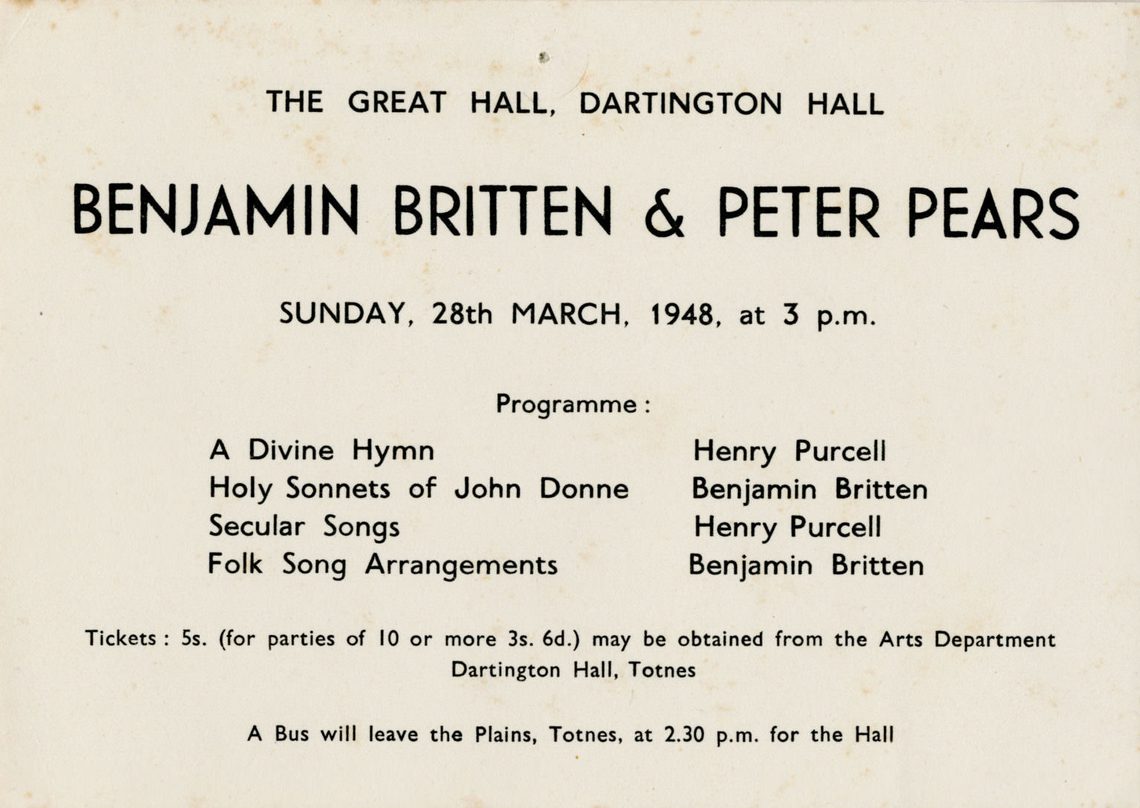
Card advertising Britten and Pears recital, ref no. HOL/2/7/17/1
She invited the couple back to perform at Dartington almost annually thereafter and their friendship and mutual respect grew. Holst began to take on work for Britten leading to her move in 1952 to Aldeburgh to work as his music assistant. Here Holst continued her enthusiastic, spirited and energetic work with amateurs becoming a much-loved part of the music scene in Aldeburgh and more widely in Suffolk.
- Judith Ratcliffe, Archivist